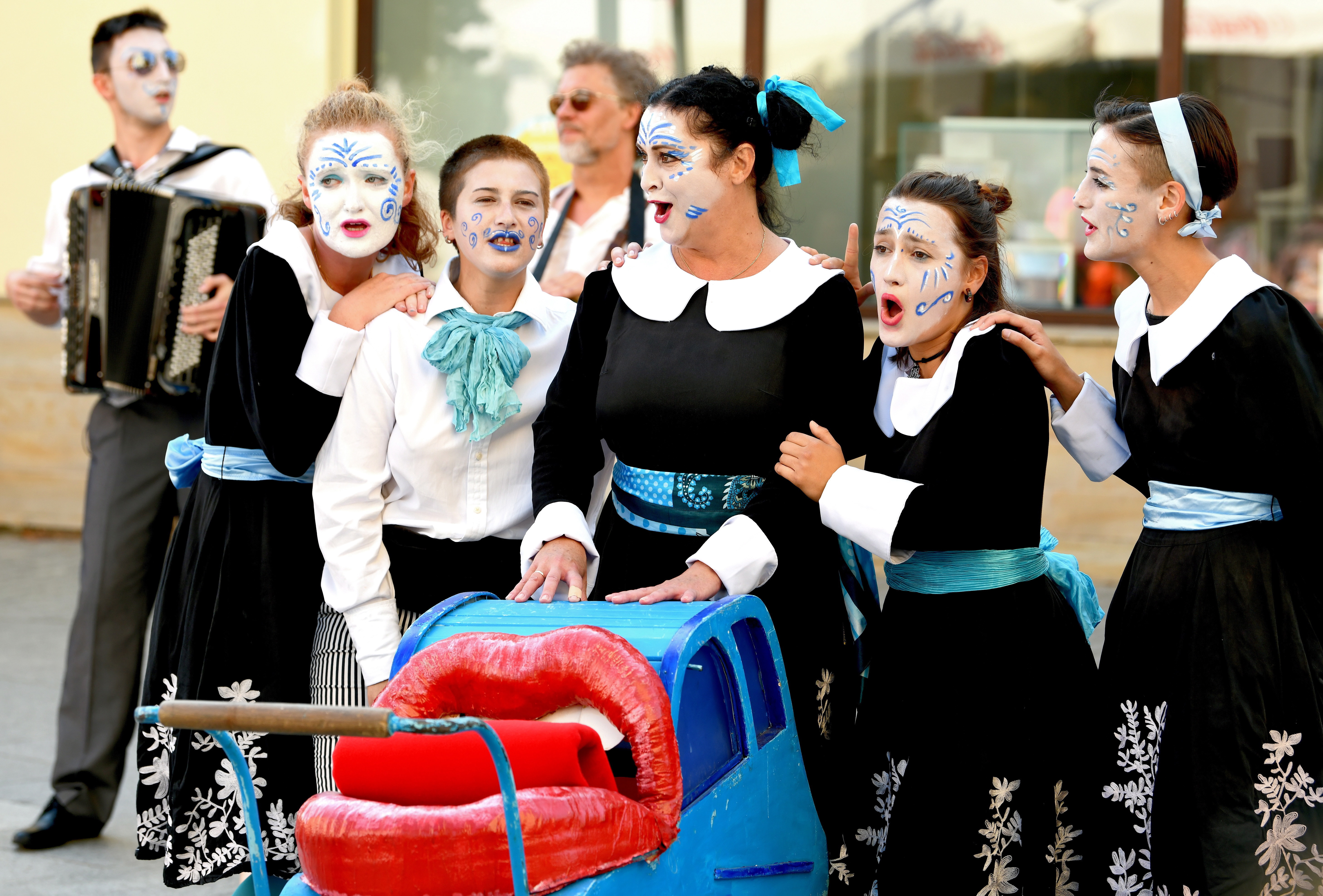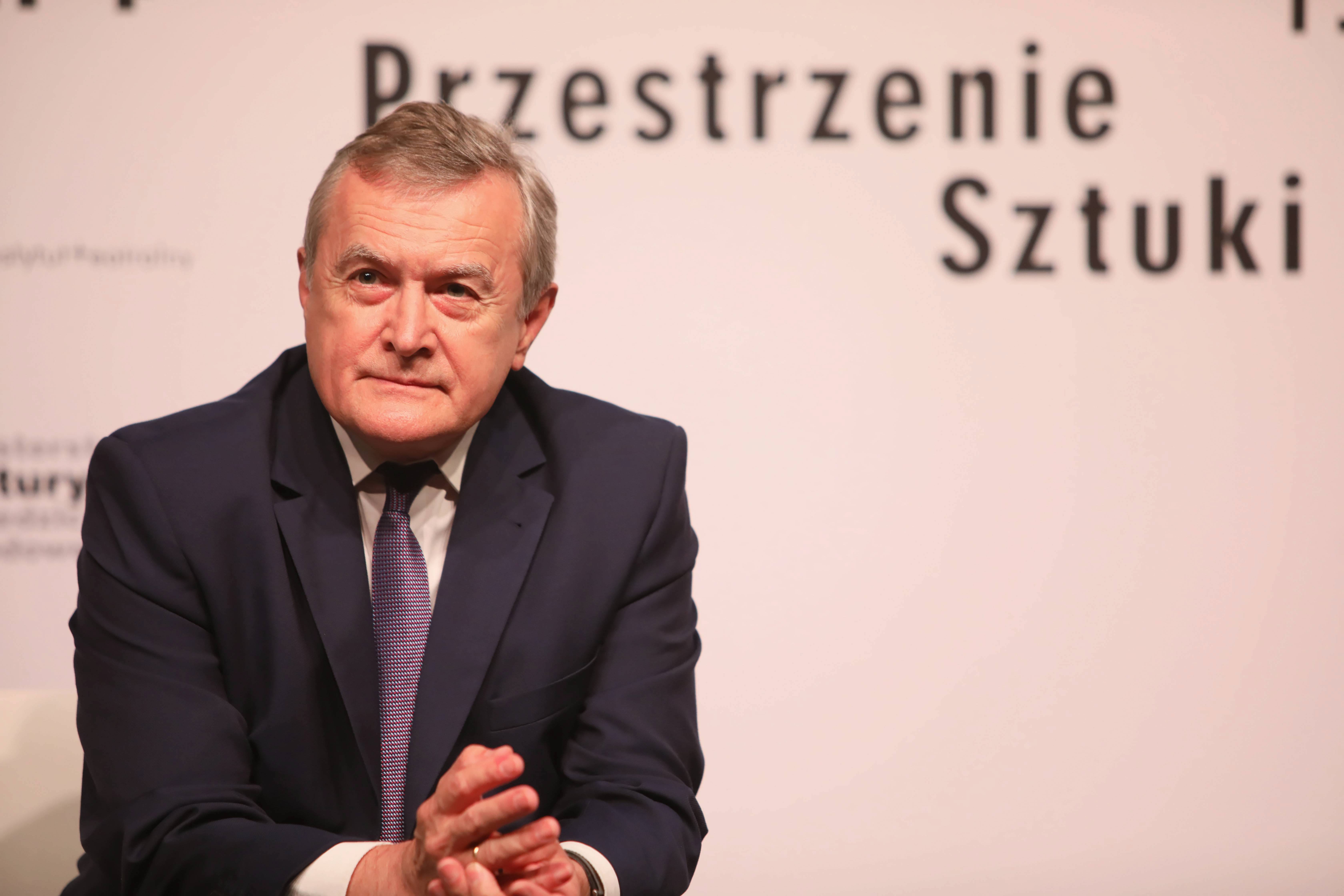31 December 2020
Originally published
07 September 2020
Source
A combination of the pandemic, new health requirements and what some feel is government partiality is threatening Poland’s cultural life.
For theatrical artists, September traditionally offers a sense of excitement and a point of pride after months of rehearsals. This year, though, the launch of the new season is marked by uncertainly and a fear about whether the sector, already crippled by the pandemic lockdown and subsequent health measures, can survive a second wave of the coronavirus.
Theatres in Poland cautiously reopened this summer, but were forced to implement strict health and safety precautions, including limiting attendance per show to 50 per cent of capacity with no adjacent seating and face masks to be worn by theatregoers throughout the performance.
Many artists find that unfair. Over the last few months, thousands in Poland have ignored social distancing rules by packing beaches, weddings, clubs, as well as political rallies ahead of the presidential election in June and July. Leading politicians rarely wear masks in public, while the prime minister claimed that “the virus on its way out,” despite still-mounting cases and deaths.

Stage actors attend a parade “Senses A3Theater” during the Festival European Stadium of Culture 2020 in Rzeszow, southeastern Poland on 29 August 2020. Photo: © EPA-EFE/Darek Delmanowicz
Michał Żebrowski, an actor and managing director of the popular private 6th Floor Theatre in central Warsaw, said he does not expect theatres to be treated in any special way. However, “for us, staging shows with no full audience is unprofitable. If there are no spectators, we die, we are gone,” he said. The last time his theatre hosted a performance was on March 14, just one month after it had celebrated its 10th anniversary in style. Now, with all plays for autumn being called off, “our situation is agonal,” Żebrowski commented wryly. “But who really right now is interested in the fate of artists and theatres?”
Lack of support accusations
Those whose shows were not cancelled have been forced to find other ways to produce them. For Katarzyna Raduszyńska, a theatre director, staging Edmond Rostand’s Cyrano de Bergerac in her hometown Walbrzych in south-western Poland was meant to be a deeply personal journey after years spent in Warsaw and abroad. The idea was not so extravagant: to stage a play for 12 actors with an original score and choreography. But after the coronavirus outbreak she was offered instead a monodrama with no score or choreography. Still, she said she does not bear any grudge. “In many ways, this monodrama saved both the whole project and my collaborators, who were able to keep their jobs,” Raduszynska admitted. “I’d have dealt with this odd situation one way or another, yet many artists I know are in a much worse position.”
Raduszyńska is one of thousands of artists, many with unstable incomes and fragile safety nets, who have received emergency money from the Polish government. She applied for a one-off handout of 1,800 zloty net (400 euros) from the Culture Ministry and 2,400 zloty net (540 euros) from the state-run Polish Film Institute. She also won a “Culture in the Web” grant distributed among individual artists and institutions, including local governmental cultural institutions, NGOs and churches, worth some 7,500 zloty net (1,700 euros).
“These are only some of many forms of support for artists and cultural institutions,” the Culture Ministry told BIRN in emailed comments. Others include increasing funds for special programmes and scholarships awarded by the culture minister, among other things. The self-employed and those in non-standard forms of employment can also apply for certain benefits under economic aid packages passed by parliament. This autumn, a new aid scheme will also be introduced, the ministry said, worth some 425 million zloty (95 million euros). So far, the ministry claims, it has invested nearly 94.5 million zloty (21 million euros) in the arts since the crisis emerged in mid-March.
Some commentators have criticised the Culture Ministry for waiting too long to come up with a proper response to the crisis and said the hitherto package is rather symbolic, particularly compared with the money transferred earlier this year to loyal media outlets (450 million euros) or the millions of euros spent on a planned presidential election to be organized exclusively by mail, which the ruling right-wing Law and Justice (PiS) party was pushing for in May, but which ultimately did not take place.

Deputy Prime Minister of Poland and Minister of Culture and National Heritage Piotr Glinski. Photo: © Leszek Szymañski / PAP / picturedesk.com
According to Jerzy Hausner, an economist and co-author of the Alert Kultura bulletin, the Culture Ministry has, in fact, abandoned its responsibilities. The ministry’s package was “a short-term solution which didn’t correspond to all the seriousness of the situation,” he said. Under the PiS government, Hausner added, “culture is the first to be closed and the last to open.”
Political indifference?
In power for five years, PiS has been steadily attempting to reorient Poland’s cultural life in a more nationalist direction, embroiling itself in a bitter battle with a large section of the artistic community, which has only aggravated its current frustration.
Some moves of Piotr Gliński, Poland’s culture minister, including calling for the cancellation of productions based on controversial plays and the cutting of public funds to liberal and left-wing outlets, have been seen as attempts at censorship. Art administrators appointed by Gliński, often without a competitive process, have been accused by local figures in the art world of trying to infuse the country’s leading institutions with nationalist dogma.
Just this summer, Janusz Gajos and Jan Peszek, one of Poland’s greatest contemporary actors, caused controversy by expressing in separate interviews their dissatisfaction with PiS, which provoked harsh responses from PiS officials, including Gliński. BIRN tried to get in touch with eight PiS members of parliament’s culture committees – five from the Sejm and three from the Senat, including the various committees’ leadership – to discuss the topic of state support for arts and tensions between PiS and many artists, though none responded.
BIRN tried to get in touch with eight PiS members of parliament’s culture committees – five from the Sejm and three from the Senat, including the various committees’ leadership – to discuss the topic of state support for arts and tensions between PiS and many artists, though none responded.
While the economist Hausner faults PiS for not providing sufficient financial support, he said artists themselves should engage more in adapting to life during and after the pandemic. “If I was a director of a cultural institution, I’d immediately start thinking about how to reorganise my artistic activity. Over these last few months, both the audience and external conditions have changed dramatically – what was there will never come back.”
“All these pandemic experiences gave me a sense of self-worth,” Januszkiewicz admitted. “I know that I can do everything, that I am strong enough and I can deal with all sorts of unpredictable conditions.”
The opinions expressed are those of the author only and do not necessarily reflect the views of BIRN or ERSTE Foundation.
First published on 7 September 2020 on Reportingdemocracy.org, a journalistic platform run by the Balkan Investigative Reporting Network.
This text is protected by copyright: © Dariusz Kalan / Reporting Democracy. If you are interested in republication, please contact the editorial team.
Copyright information on pictures and graphics are noted directly at the illustrations. Cover picture: Actors of the Sfinks Theater perform during the premiere of the “Forcing Freedom”, directed by Robert Florczak, in front of the Shakespeare Theater, as part of the celebration of the 40th anniversary of the August 1980 Agreements in Gdansk, Poland, 28 August 2020. The 1980 August agreements were between striking workers and Poland’s communist authorities which led to the creation of Independent Self-governing Labour Union “Solidarity”. Photo: © EPA-EFE / Adam Warszawa